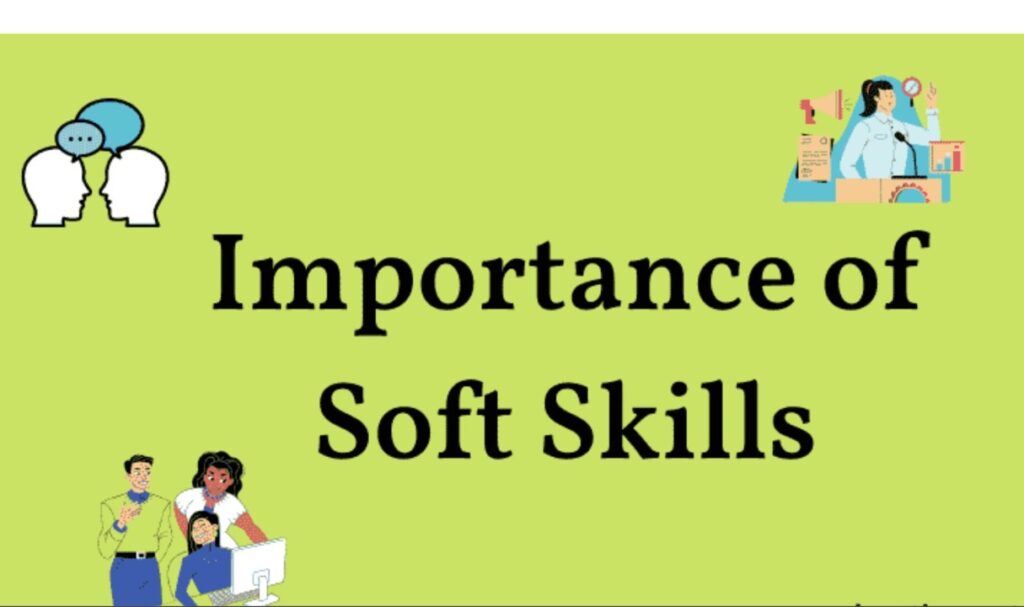
A successful individual needs a lot more than simply technical know-how and proficiency to succeed in the fast-paced workplace of today. Soft skills, or the ability to interact well with others, are highly valued since the environment of work continues to change and people need to have these qualities to cooperate with others. Strong technical backgrounds and practical industry experience are prerequisites for success as company executives. Prompt advancement in a profession can be achieved via early career development and demonstration of these talents. Professionals in the business world can get practical experience and knowledge, but obtaining a degree, like an online Bachelor of Science in Business Administration, can also help them acquire soft skills.
Those who do so will be better prepared to assume leadership roles since they will have a solid grasp of business procedures and the abilities to apply them. Soft skills are the cornerstone of successful cooperation and organizational success. They range from communication and cooperation to flexibility and problem-solving. From previous employment, responsibilities, life experiences, and hobbies, all of us have developed talents. There’s a chance that you possess undiscovered abilities that, upon discovery, you may highlight on your CV and elevate your standing in the job market. We’ll look at some instances of vital soft skills in this blog, along with the reasons they’re even more important than ever before for achieving success in the job market.
What is Soft Skills?
Soft skills are also known as interpersonal or people skills. These are the intangible characteristics that distinguish those who work in the workplace. These include, but are not limited to, the capacity for clear communication, effective teamwork, time management, and collaboration. It is the cornerstone of a successful career which extends across industry boundaries and is essential for both personal and professional development.
Soft skills include a wide range of qualities, from emotional intelligence and flexibility to leadership and communication. They play a crucial role in managing the intricacies of the contemporary workplace in addition to being vital in creating a good work environment. Soft skills are essentially the hidden warriors that enable professionals to flourish in their positions, form deep connections with others, and differentiate themselves in a crowded job market.
Importance of Soft Skills

Soft skills are just as vital as hard skills when looking for a new job or career move, although many people concentrate on getting new technical expertise or training. So, following are the importance of soft skills
- A candidate with better soft skills will be hired by the hiring manager since they are the most important factor in the recruiting process.
- Soft skills will become increasingly important in the workplace as a consequence of automation and artificial intelligence.
- Soft talents, like emotional intelligence, are difficult to automate and are not anticipated to do so anytime soon, hence in the near future, soft skills are predicted to grow increasingly in-demand.
- If you don’t have as many hard skills, you can still promote yourself using soft skills.
- It is helpful while negotiating on your employer’s behalf as well as in your professional interactions.
The Essential Soft Skills for Every Business Professional

These are the fundamental soft skills that will help you succeed in future and are highly valued by employers.
Communication
To succeed in any industry and to create lasting connections, effective communication is important. It includes paying close attention when others are speaking, expressing ideas effectively, and changing communication tactics depending on the target audience. Improved customer interactions, teamwork, and cooperation are all facilitated by effective communication. Improving both your written and spoken communication skills can help you express yourself clearly and have a good impact on others. Speaking the language isn’t enough. Active listening, presentation, and strong writing are all components of communication skills. The capacity to communicate technological ideas to partners, clients, and coworkers who aren’t tech-savvy is one highly sought-after communication talent. Training in business skills places a strong emphasis on the art of interacting with others, teaching learners how to listen intently and articulate ideas clearly.
Problem Solving
Analyzing complicated problems, finding answers, and coming to wise conclusions are all part of having problem-solving abilities. These problem-solving skills are refined via business skill training, empowering professionals to approach problems creatively and strategically. Resourceful, intelligent, and proactive people solve problems well. They possess the ability to think critically, weigh alternatives, and put plans into action to get over challenges. Improving your problem-solving skills gives you the confidence to take on problems and bring creative ideas to your company. This ability is essential for seeing and seizing opportunities and problems that are complicated in a range of settings. Because problem solvers are able to assess circumstances and choose the most effective course of action, they also facilitate the making of more informed judgments. Teams can do more in less time as a consequence.
Leadership
A manager’s job requires more than just leadership abilities. It involves leading and persuading people to make the most of their strengths to accomplish a group objective. Maybe you’ve always wanted to manage people in your industry but haven’t had the chance, or maybe you have managed people previously. Strong leadership abilities are crucial, whether you’re in charge of a team or taking the lead on a project. Strong decision-making, communication, and problem-solving abilities are displayed by effective leaders, who also promote cooperation and trust. Any position where you desire to progress your coaching, directing, and listening skills to align a group of individuals to go toward the same direction will help you grow or improve your leadership skills. Any leadership expertise you may have may also be put to use by mentoring the next generation to assist them attain their professional objectives by helping them cultivate their leadership abilities.
Team Work
There will always be opportunities to improve these interpersonal skills while working with new people who have diverse personalities and viewpoints. Working with others to achieve a common objective is a necessary component of teamwork. Working in a group necessitates cooperation, communication, and a common commitment. Collaborative workers have a higher chance of succeeding in their careers and making a positive impact on the performance of their businesses. Effective cooperation in a work environment may stimulate creativity and innovation by motivating individuals to exchange ideas, come up with fresh solutions, and work together on new projects. Collaborating with others in a team may also improve job satisfaction and build a happy workplace. It calls for clear communication, compassion, and a readiness to make concessions. Being team player shows that you are dedicated to the objectives of the company and that you can foster positive working relationships.
Adaptability
Today’s changing workplaces require an excessive amount of flexibility. Professionals who receive business skills training are more prepared to adapt to changing circumstances, take calculated risks, and flourish in fast-paced environments. It is the capacity to welcome innovation, pick up new skills, and react constructively to changing conditions. People who can swiftly adjust to new work settings, methods, and technology are highly appreciated. Being flexible shows that you’re eager to take on new tasks, use your imagination, and keep becoming better. You present yourself as a great value to your company by being adaptable. As a result, one essential soft skill that helps people remain ahead of the curve is flexibility. Employers that have flexible staff can recover from failures far more quickly since unforeseen obstacles are unavoidable. They may also swiftly assess conditions and modify their strategy to fit the needs of the moment.
Conclusion
Soft skills are essential to have in a portfolio of business talents. You may improve your entire life by attempting to develop your people skills, which will make you a better worker, friend, and member of the community. Although technical proficiency is important, these abilities set exceptional experts apart. Developing these skills makes you more productive, fortifies your connections with colleagues, and establishes you as a priceless addition to your company. This program unlocks and refines priceless soft skills, acknowledging the significance of good communication, teamwork, and empathy. The secret to succeeding in today’s dynamic work environment is to become proficient in these intangible traits. Accept these soft talents, and observe as you rise to new heights in your career.




